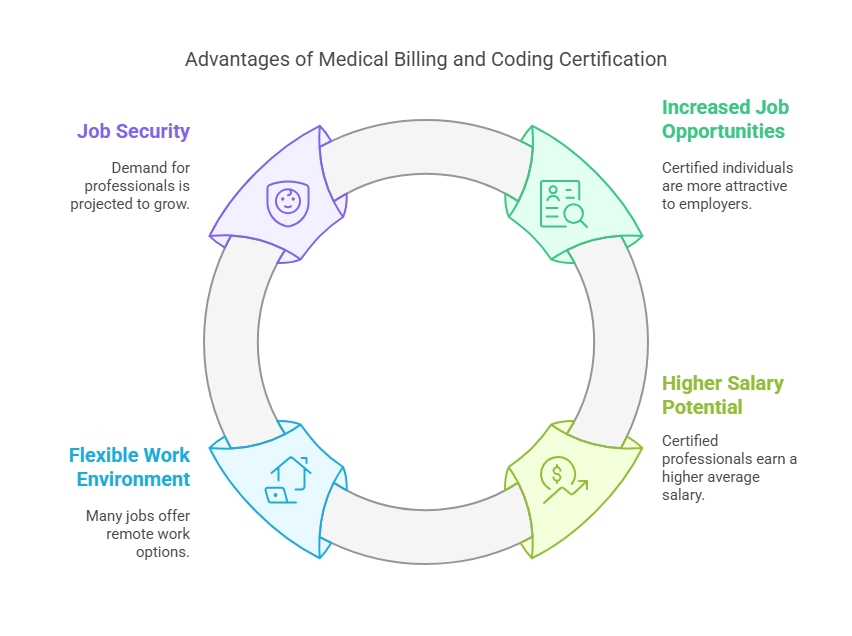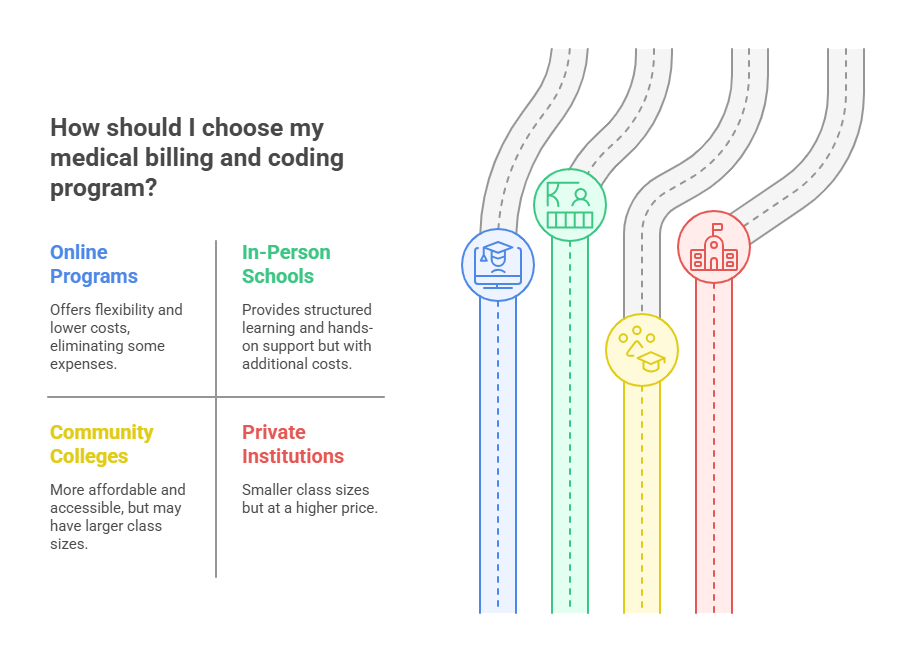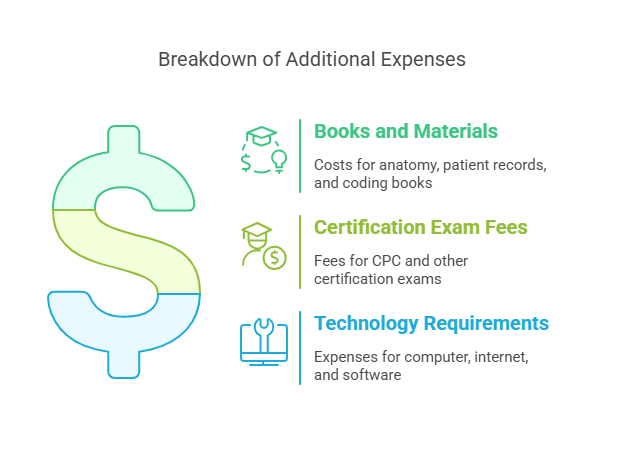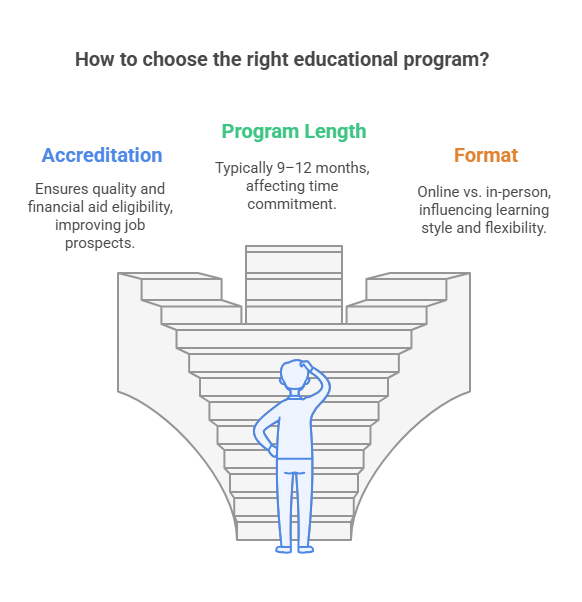How Much Is a Medical Billing and Coding Certificate? A Detailed Cost Guide
When pursuing a career in healthcare support, one of the first questions often asked is, “How much is a medical billing and coding certificate?” In 2025, the cost of obtaining this certification varies widely, generally ranging between $4,000 and $10,000. The price depends on several factors such as program type, location, delivery method (online vs. in-person), and institution. Additionally, students must also factor in expenses like books, certification exam fees, and technology requirements.
This guide provides an updated breakdown of tuition costs, financial aid options, and benefits to help you make an informed career investment.
What is Medical Billing and Coding?
Medical billing and coding is a crucial administrative function in healthcare. It involves assigning standard codes to medical diagnoses, procedures, and services in patient records. These codes ensure accurate billing and facilitate reimbursement from insurance providers and government healthcare programs. Earning a medical billing and coding certification from a trusted organization like AMBCI helps professionals demonstrate their expertise and increases their opportunities in this vital healthcare field.
Professionals in this field use coding systems like ICD-10 and CPT. A medical billing and coding certificate equips students with the skills to handle these responsibilities efficiently, preparing them for remote or on-site roles in hospitals, clinics, and insurance companies.
Benefits of a Medical Billing and Coding Certificate
1. Increased Job Opportunities
Certified individuals are more attractive to employers. Many healthcare facilities prioritize candidates who have formal training and certifications.
2. Higher Salary Potential
According to the Bureau of Labor Statistics (BLS), certified professionals in this field earn an average salary of $52,000, with potential to exceed $80,000 over time.
3. Flexible Work Environment
Many coding jobs offer remote work options, allowing greater flexibility for those seeking work-life balance.
4. Job Security
The demand for medical billing and coding professionals is projected to grow by 8% through 2030, thanks to the expansion of healthcare services.
Cost Breakdown in 2025
Tuition Costs
Medical billing and coding programs typically cost between $4,000 and $10,000. Prices vary depending on whether the program leads to a certificate or an Associate degree.
Online Programs
Offer more flexibility and lower tuition costs.
Average cost per credit: $90.
Eliminate expenses like transportation and campus housing.
In-Person Schools
More structured learning and hands-on support.
Additional expenses include transportation, physical books, and facility fees.
Community Colleges vs. Private Institutions
Community colleges are more affordable and widely accessible.
Private schools may offer smaller class sizes but usually come at a higher price.
Additional Expenses to Consider
Books and Materials
Books covering anatomy, patient records, and coding procedures can cost between $200 and $500.
Certification Exam Fees
Certified Professional Coder (CPC) Exam: $375
Other certification exams: Up to $399
Technology Requirements
Online learners need a reliable computer, high-speed internet, and sometimes specialized software. These technology costs can total $500 to $1,200.
Financial Aid and Scholarship Options in 2025
Federal Financial Aid
Programs accredited by recognized agencies are eligible for FAFSA grants and student loans.
School-Specific Scholarships
Many community colleges offer need- or merit-based aid specifically for health programs.
Employer Assistance
Employers may cover a portion or all of your tuition in exchange for a work commitment post-certification.
Is It Worth the Investment?
Pursuing a certificate in medical billing and coding can be a highly rewarding investment. With a relatively low upfront cost and the potential for steady income and job growth, many students find it financially and professionally worthwhile.
Entry-Level Salary: $40,000 to $50,000
Certified Salary Average: $52,000
Top Earners: $80,000+
Choosing the Right Program
When selecting a program, consider the following:
Accreditation (ensures quality and financial aid eligibility)
Program Length (typically 9–12 months)
Online vs. In-Person Format
Flexible Payment Plans
Accredited programs improve job prospects and ensure compliance with industry standards.
Health Informatics and Medical Coding
Medical billing and coding also form the foundation for advanced roles in health informatics, a growing field that merges healthcare with information technology. Those interested in data analysis, healthcare software, or hospital management can use their certification as a stepping stone.
6 Lesser-Known Facts About Medical Billing and Coding
Medical Coding Dates Back to the 17th Century
Early versions of disease classification systems were used in London during the Great Plague to track deaths.
SourceCoders Often Specialize in One Field
Many coders focus on one area such as oncology, pediatrics, or cardiology.Coding Errors Can Lead to Legal Issues
Mistakes in medical coding can result in legal actions for fraudulent billing or compliance violations.The ICD-10 Code Set Includes Over 70,000 Codes
It's an extensive and highly specific system.
SourceCoding is Crucial for Medical Research
Proper coding contributes to data used in public health trends and research.AI is Changing the Field
Artificial intelligence is being integrated to assist with automated coding. However, human oversight remains crucial for accuracy.
Source
Frequently Asked Questions (FAQs)
-
It typically ranges from $4,000 to $10,000, depending on the institution and program format.
-
Yes. You should budget for books, exam fees, software, and tech equipment.
-
Absolutely. Students can apply for federal aid, scholarships, and employer-sponsored tuition reimbursement.
-
Certified coders earn an average of $52,000, with opportunities for higher pay based on experience and specialization.
-
Accredited programs are recognized by employers, qualify for financial aid, and ensure the curriculum meets industry standards.
Conclusion
Understanding the full financial picture of a medical billing and coding certificate is crucial before enrolling. From tuition and technology needs to certification and financial aid, there's a lot to consider. However, this short-term investment offers long-term career benefits, including flexibility, job stability, and a strong earning potential.
If you're considering a career in the healthcare field without the time or financial resources for medical school, this is a smart and accessible option. Start your journey toward a promising future by selecting a trusted and accredited program.





